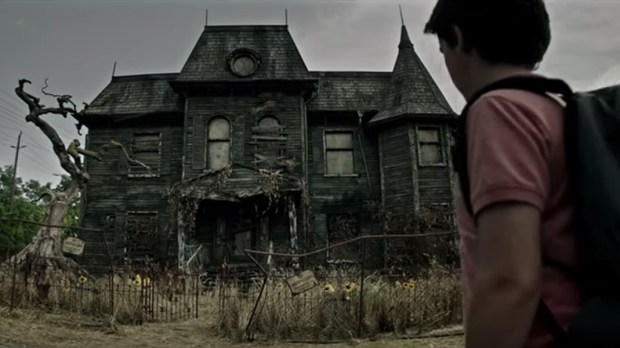Lenten Campaign 2025
This content is free of charge, as are all our articles.
Support us with a donation that is tax-deductible and enable us to continue to reach millions of readers.
Perhaps the most anticipated horror film of the year, It has finally arrived. Not without some baggage, though. As the original novel upon which the film is based remains one of Stephen King’s most beloved works, and fondness for the 1990 television adaptation starring Tim Curry runs deep, this new version of It comes burdened with more than a few expectations. Fortunately, director Andy Muschietti has managed to avoid the curse of other recent Hollywood horror reboots and delivers a version of the tale that is both familiar and fresh. It doesn’t just meet expectations, it exceeds them.
Before we get into why that is, however, let’s go ahead and deal with the inevitable comparison to Stranger Things. The makers of It have taken King’s original story and excised all scenes of the main characters as adults, saving them for the likely sequel. What remains is a nostalgia-rich story about a group of kids in the late 1980s who come together to fight a monster that is stealing children from their small town. In other words, it’s Stranger Things. But that’s okay, because as every fan of the Netflix hit knows, the creators of Stranger Things freely admit that It was a major influence on their show. So, It isn’t actually stealing from Stranger Things, it’s simply taking back what was It’s to begin with.
And what exactly is “it” that is It’s? That would be nothing less than fear itself. The creature that preys on the children of Derry, Maine manifests itself as their deepest fears. That’s a particular problem for the seven friends who make up the self-proclaimed Losers’ Club, because if there’s one thing they know well, it’s fear. Not only do they have to struggle with the typical terrors that plague all preteens (puberty, awkwardness, etc.), but each Loser has their own personal horror waiting at home. None more so than Beverly, the group’s lone female member, who suffers from the inappropriate attentions of her own father.
They also must contend with the anxiety of being singled out for the sin of being different, which is something no child that age desires. Bill’s stutter, Ben’s obesity, Mike’s home-schooling; anything at all that marks them as apart from the crowd has made the members of the Losers’ Club a target for abuse, both mental and physical. They are the meek, the mourning, the insulted, and the persecuted. And while those may be blessed states to be in as our Lord proclaims, it doesn’t always feel that way to kids.
Then, of course, there’s the problem of Pennywise. The evil clown that seems to be It’s favorite guise haunts every step the Losers take. He prowls in their darkened basements, lurks behind the shelves in mostly empty libraries, glares from the windows of abandoned houses. Think of any place that gave you the creeps as a child, and you’ll find Pennywise there waiting.
Therein lies one of the main strengths of Muschietti’s movie. While the film makes liberal use of modern CGI effects, most of It’s scares are earned the old-fashioned way through the building of suspense. There may indeed be some morphing monstrosity waiting at the other end of a long dark corridor, but Muschietti understands that it is not just the destination, but the slow, torturous trip through the valley of the shadow of death that is often the truly frightening experience.
The other thing that works in the film’s favor is the young cast. While it is Bill Skarsgård’s turn as the pernicious Pennywise that is naturally getting all the prerelease press, it is the ensemble of youngsters that will truly win over audiences. Everything about the kids feels natural, from their frailty in the face of danger, to their easygoing camaraderie during the quiet times. Most important, the friendships come across as real, which is essential in a story where that bond becomes the key to confronting the monster.
The success of It comes as something of a relief. It’s always worrisome when a new iteration of a beloved story comes around, as the filmmakers could easily have a fundamental misunderstanding of the source material, or simply not care because they want to impose their own “vision” on the story. Not so this time. Muschietti and his crew have stuck to the basics and provided a film that is equal parts Goonies and Grand Guignol. They keep the heroes decent and likable, the monster unambiguously evil, and the ending sweet and satisfying. Audiences should respond accordingly.

